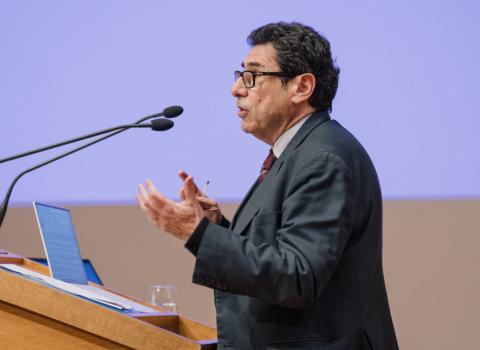
ICRSET chair Jane Grimson: “Fully in line with European and OECD guidelines.” Image courtesy ICRSET.
The development is in line with best international practice to enhance access to publicly-funded research. The new policy took effect from 1 May, following a public consultation process in 2007
Where a paper arises in whole, or in part, from IRCSET-funded research, researchers will now also be required to file their published research papers in an open access repository as soon as is practical, but within six calendar months at the latest.
The requirement will from now on form part of IRCSET’s terms and conditions in offering and providing funding to researchers.
IRCSET is now funded under the National Development Plan of Ireland and will allocate approximately €26.0 million in 2008 to the development of early stage research careers.
A number of Irish universities currently provide open access repositories of their own and a consortium of Irish universities is engaged in the development of a national open access repository system that will connect the repositories of each participating institution.
In an Open Access Repository system, the usual copyright and fair practice considerations are not waived and publication on Open Access does not preclude prior publication in a recognised research journal or commercial publication.
“This is intended to be a highly beneficial policy which is fully in line with European and OECD guidelines,” commented Jane Grimson, Chair of IRCSET. “The intellectual effectiveness and progress of the widespread research community can be continually enhanced where there is recourse to as wide a range of shared knowledge and findings as possible.”
“This is particularly the case in the realm of publicly funded research where there is a need to ensure the advancement of scientific research and innovation in the interests of society and the economy, without unnecessary duplication of research effort.”





 A unique international forum for public research organisations and companies to connect their external engagement with strategic interests around their R&D system.
A unique international forum for public research organisations and companies to connect their external engagement with strategic interests around their R&D system.